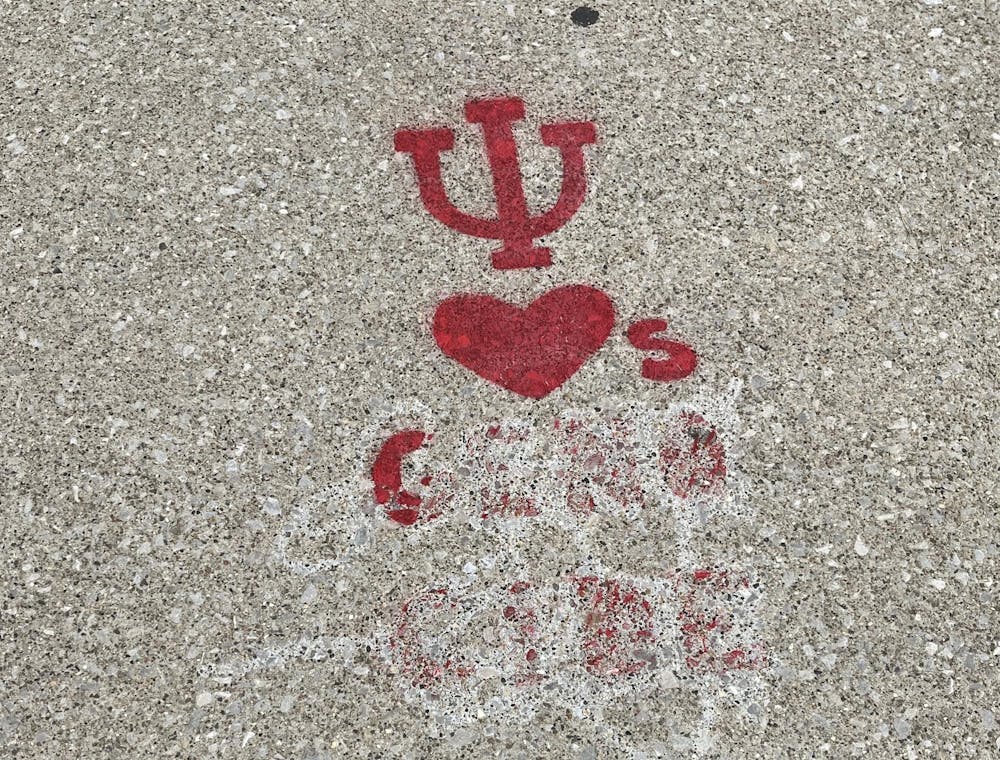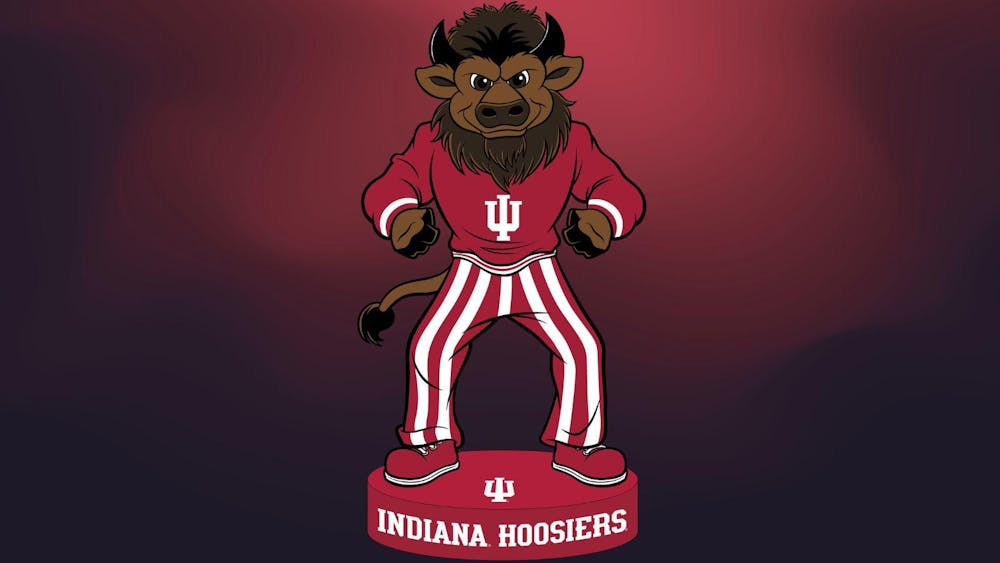In total, the Dunn Meadow encampment lasted 99 days. Or 100, if you’re being generous. Perhaps to prevent the scenes we saw in April, when 57 students were arrested, or perhaps because the number of students still here during the summer is so low, protesters didn’t intervene when the IU Police Department and facilities operations workers removed the tents for the final time. Now, a fence surrounds the meadow indefinitely as the university completes “extensive repairs,” and the future of the campus pro-Palestinian student movement remains uncertain.
On Aug. 1, IU’s new expressive activity policy went into effect. Also known as UA-10, the policy was created primarily in response to the encampment, which has been a thorn in the university administration’s side since its establishment. As to be expected, rather than codifying students’ right to free expression, the policy limits it to a fantastic degree. Among other things, it restricts all “expressive activity” to between the hours of 6 a.m. and 11 p.m., prohibits any activity that might “materially and substantially disrupt” campus operations, and requires a 10-day notice for the installation of any temporary structures and prohibits camping on university property at any time.
With its abundantly prohibitive language, it’s clear the policy was quickly passed — over the summer when most relevant stakeholders are away from Bloomington, no less — to prevent the building of any new encampments and to quietly sweep the IU Divestment Coalition, and the broader pro-Palestine student movement, under the rug. But its language also raises questions about the status of the Indiana Graduate Workers Coalition as well: Would its strikes, which, by design, substantially disrupt university operations, now result in direct retaliatory action by the university? Would graduate students who participate in the strikes be punished by the Office of Student Conduct?
These are appropriate questions to ask — the IGWC has, for much longer than the encampment, also been a thorn in the administration’s side. UA-10, then, is nothing more than IU finally figuring out how to kill two birds with one stone.
There is no point to a protest if it doesn’t disrupt unjust activity or exasperate an unjust system. The Palestinian solidarity protests and the IGWC have, thus far, been successful precisely because they shut down campus operations and forced the public, and administrative officials like President Pamela Whitten and Provost Rahul Shrivastav, to listen. And that’s exactly why the university responded with the full force of its power and enacted a policy that seeks to repress them entirely.
“What country can preserve its liberties,” Thomas Jefferson wrote, “if their rulers are not warned from time to time that their people preserve the spirit of resistance?”
We’ve most certainly moved past the present stages of these movements, but it’d be foolish to assume the movements themselves are going anywhere. Repression only breeds more contempt, and contempt only fuels the flames of rebellion.
* * *
The university justified UA-10, in part, because of an independent post-action review undertaken by the global law firm Cooley LLP. The review, in its 75 pages, lays out the events of late April within their proper context, starting with the Oct. 7, 2023, Hamas-led attack on Israel and the subsequent student unrest that ultimately led to the establishment of encampments at college campuses throughout the world. It also describes the late hours of April 24, when IU administrative personnel convened to revise the traditional Dunn Meadow policy without the knowledge of students and faculty. And, finally, as is the purpose of an independent investigation, Cooley lists a series of findings and recommendations for the university moving forward.
The firm concludes that the university “balanced free speech, campus safety, and regular university operations amidst a challenging and rapidly evolving situation.” It goes on to recommend that IU pass its expressive activity policy, review existing policy and make appropriate changes and increase funding for IUPD in order to hire more officers. Of course, it levies restrained criticism at the university for a handful of things — for example, it admits that IU has “a decades-long history of inconsistently enforcing its policies” — but these amount to little more than a symbolic slap on the wrist.
It’s true the university is well within its constitutional rights to restrict absolute free speech. The U.S. Supreme Court has ruled that “time, place, and manner” regulations are appropriate, which is, presumably, the justification IU could use to repress certain encampments and other disruptive protests. But, still, it’s only natural for one to wonder why a university that claims to foster “an environment that values a culture of open dialogue and free expression” would choose to be so prohibitory in its support.
It’s true the university has a responsibility to keep students safe from physical harm and harassment. We all have a responsibility to prohibit acts of violence on our campuses. According to the Cooley review, there were, allegedly, instances of antisemitism among some of the protesters in Dunn Meadow, but such reports were few and far between. Needless to say, such acts are reprehensible and should be condemned to the greatest degree. But it’s mistaken to assume they are the rhetoric and ethos of the encampment and the movement more generally. If the encampment’s mission were truly antisemitic, then it wouldn’t have the backing support of groups like Jewish Voice for Peace and a whole host of Jewish professors, students and faculty.
The university was also reportedly concerned that, in setting up an encampment, protesters would be putting themselves, and others, at risk for physical violence. But, over the course of 99 days, the only time the encampment experienced this sort of violence was when the university sent the IUPD and the Indiana State Police to shut it down. Besides April 25 and 27, it remained a peaceful protest — exactly as it was designed to be.
I’ve no doubt that this past year, and the year to come, will go down as an important chapter in IU’s history. Should there be a comprehensive book written one day, it will portray, even in the most unbiased manner, a university that worked hard to silence the growing voices of discontent. And it will portray a student body that refused to comply. And it will be clear then, as it is clear now, which side was truly committed to freedom and liberty.
Joey Sills (he/him) is a senior studying English and political science.






